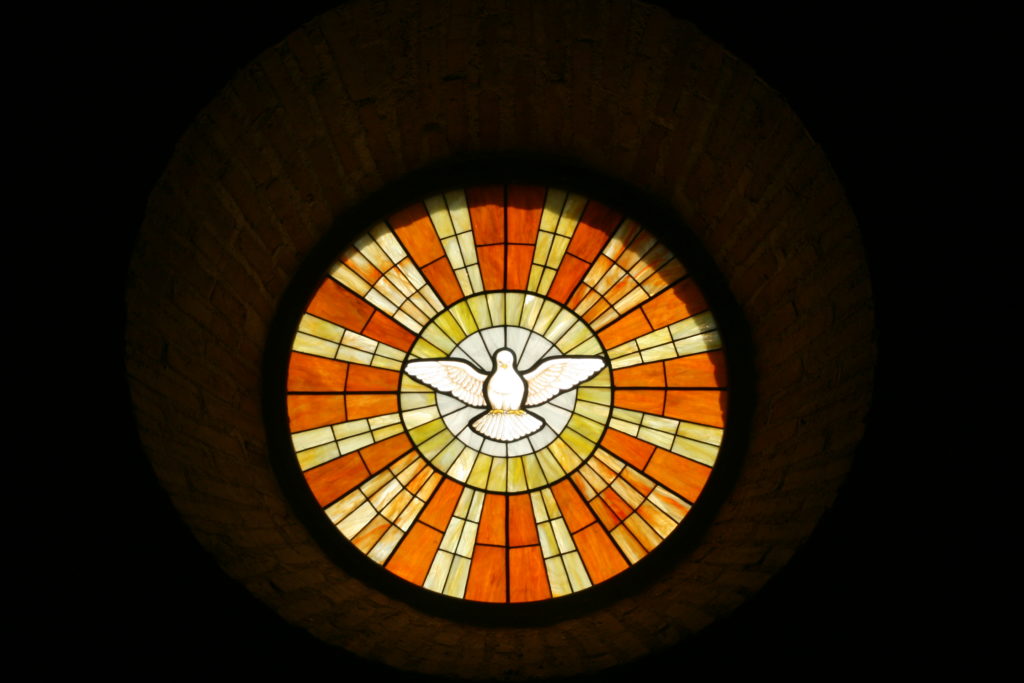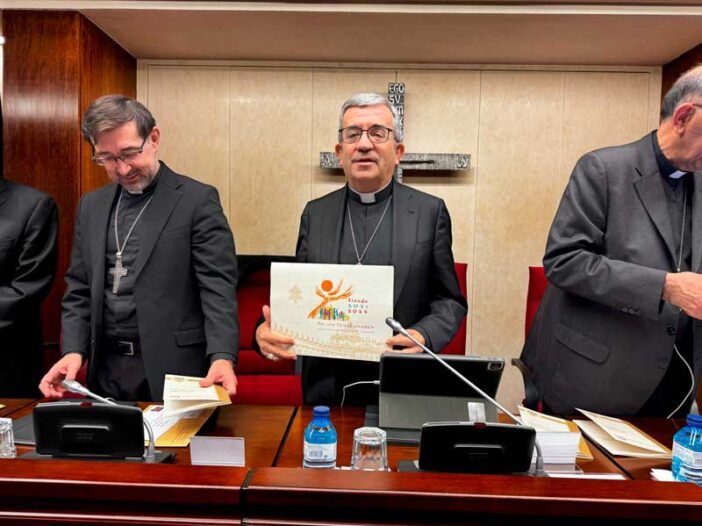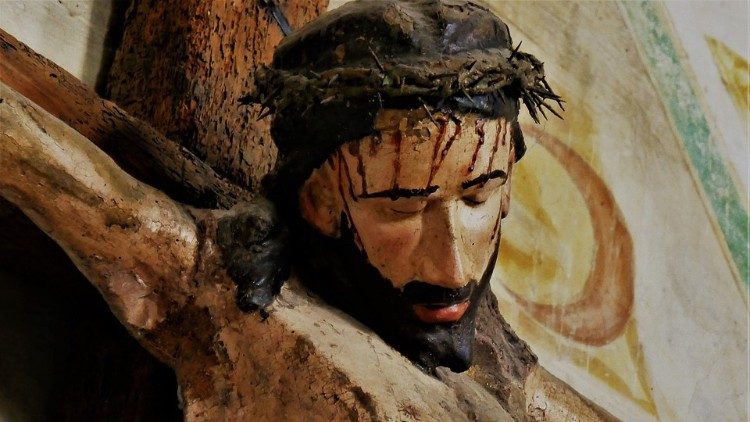Reflection by Bishop Enrique Díaz: “Send, Lord, your Spirit to renew the earth. Hallelujah”
Pentecost Sunday

Mons. Enrique Díaz Díaz shares with Exaudi readers his reflection on the Gospel of this Sunday, May 19, 2024, titled: “Send, Lord, your Spirit to renew the earth. Hallelujah”.
***
Acts 2, 1-11: “They were all filled with the Holy Spirit and began to speak”
Psalm 103: “Send, Lord, your Spirit to renew the earth. Hallelujah”
I Corinthians 12, 3-7. 12-13: “We have been baptized in one Spirit to form one body”
Saint John 20, 19-23: “As the Father has sent me, so I send you: Receive the Holy Spirit”
Pentecost, that is, fifty days after Passover, was a festival in Israel to celebrate the gathering that later changed from an agricultural festival to a historical festival that remembered the promulgation of the law on Sinai. On that day, the city of Jerusalem was filled with Jewish believers coming from different places in the diaspora. Today, Christians commemorate the gift of the Spirit on Pentecost. On the day of Pentecost, the disciples were fearful and did not know what to do when they were shaken by the Spirit and led to proclaim the Good News. That community is presented as the new people of God filled with the Spirit who bear witness to Jesus. Hence, Pentecost is also the feast of the birth of the Church.
Today we celebrate the day of Pentecost with a great outpouring of signs that seek to highlight this dynamic, vital and renewing presence of the Spirit in the midst of the Church. There are many “signs” that Scripture uses to tell us about the emergence of the “Comforter”, promised by Jesus to his disciples. Each of these signs contains a great teaching and tells us, although partially, about its activity: fire, wind and dew; the water or the rain, the dove and the cloud, the language that everyone understands. But the Spirit is much more and cannot be enclosed in what is a symbol to represent it. Perhaps at different stages of our lives and in different circumstances, a particular figure draws our attention more. These days I have been wondering why it will frequently appear under the sign of the wind.
Perhaps for us the word Spirit does not sound so dynamic and so full of life because it rather has a metaphysical meaning, designating a “material non-being”, but since the Old Testament the word used in Hebrew to designate it, “ruaj”, has more the meaning of “breath of life”, in a special way its manifestation in breathing, breath, wheezing, which manifests all that inner vitality that a living person has. Wind, gale, breeze, air, aura, are expressions that fall short when we want to express everything that is the Spirit. It is a force that drags, palpable and evident, although the eyes can only see its effects. It is the “breath” of God, his own breath, which, infused into the clay figure, transforms it into a person in his image and likeness. Likewise, it is the powerful wind that brings forth judges and prophets. It is the soft and silent breeze that manifests the presence of God.
It is the wind that blows in Jesus, who is driven, “anointed by the Spirit”, to carry out his mission: announce Good News, proclaim liberation, open eyes and announce a year of grace. Jesus is the man carried away by the Spirit. And on this day the disciples also appear before us, that small and helpless community, who feel the same wind of Jesus. Powerful wind capable of making them change their lives, their mentality and their religion. Those who were previously scared, timid and in hiding, thinking only of escaping a death similar to that of their teacher, are now transformed into bold missionaries capable of facing the Sanhedrin, of opening borders, of expressing themselves in new languages, of leaving the safety of the cenacle to explore new spaces where the Good News resonates. In the Gospel passage, with the “breath” of Jesus and the words of sending, they receive the same mission of Jesus, with all his commitments and obligations, with all his manifestations, one of which will be forgiveness and reconciliation.
Sometimes as Christians we give the impression of being a boat that does not want to be touched by the wind and that remains motionless, with the appearance of being faithful, that does not allow itself to be propelled, that does not unfold its sails because it is afraid of discovering new horizons. It is not the great winds that threaten us the most, but passivity, the dead calm, the everyday, the comfortable and the indifference. We remain like stagnant waters that, if not removed, become contaminated and rot. We remain sacred and indifferent to a changing world, we settle into our personal fears and concerns and are not able to open ourselves to the breath of the Spirit. Sometimes in our conformism, we allow ourselves to be carried away by harmful, destructive winds, in order to follow the current of the world and its culture of death.
But today we must experience this “wind”. We need to raise our heads and take a deep breath so that it can internalize us and make our deep source emerge. Today there is wind, there is direction, there is destiny, there is mission. Today is a very special day to enter for a moment inside ourselves and listen, beyond the everyday, the accustomed and the trivial, to the voice of God and the wind, soft and powerful, capable of pushing our ship to good ports. It is a day to ask for each one of us and for our Church, the “wind” of Jesus. Today is a day to announce new reconciliation, a new language of peace, capable of overcoming barriers and divisions, today is a day of new attitudes towards our brother. It is a day to let the Spirit of justice and truth be heard within us. Will we open our hearts to Him?
Our God, who through the mystery of Pentecost sanctifies your Church spread throughout all nations, grants the entire world the gifts of the Holy Spirit and continues to bring about among the faithful the unity and love of the primitive Church. Amen.
Related

“The priest finds his reason for being in the Eucharist”
Fundación CARF
01 April, 2025
5 min

Family Valued: An international appeal for the family
Exaudi Staff
01 April, 2025
2 min

Bishop Luis Argüello Addresses the Challenges of the Church in Spain
Exaudi Staff
01 April, 2025
2 min

THE WAY OF THE CROSS: Accompanying Jesus on the way to the Cross
Luis Herrera Campo
31 March, 2025
5 min
 (EN)
(EN)
 (ES)
(ES)
 (IT)
(IT)

